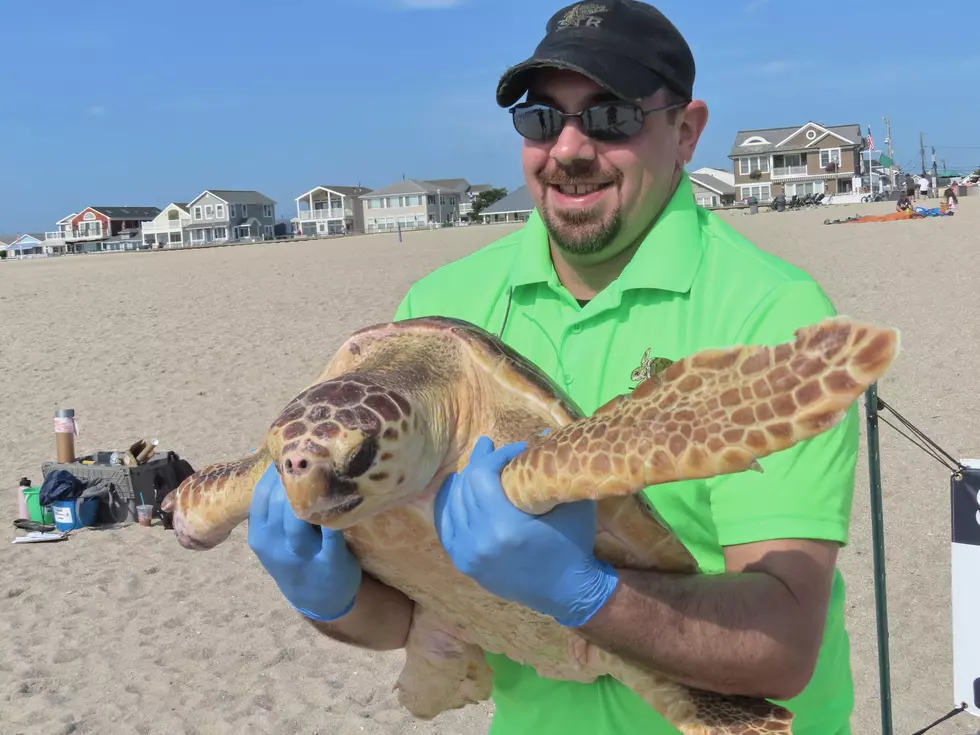
NJ residents warned: Don’t kiss your turtle
❗ Federal health officials are concerned about a dangerous salmonella outbreak
❗ The outbreak has been linked to small turtles
❗ NJ has strict rules about keeping reptiles as pets
An outbreak of dangerous salmonella that has sickened 26 people in 11 states has prompted an unusual warning from the U.S. Centers for Disease Control and Prevention:
"Don’t kiss or snuggle your turtle."
The CDC has linked this most recent outbreak to "small turtles."
"Public health officials are investigating a multistate outbreak of salmonella linked to small turtles," the notice reads on the CDC website, "Although any turtle can carry Salmonella germs that can spread to you and make you sick, turtles with shells less than 4 inches long are a known source of illness. Always take steps to stay healthy around your small turtles."
The current outbreak does not list any cases in New Jersey, but there have been cases reported in New York and Pennsylvania.
Small turtles are illegal to sell
It is against the law to sell any turtle with shells less than 4 inches long. This is primarily due to the link to illness in small children who like to pick up and cuddle the small reptiles.
In New Jersey, it is legal to keep most turtle species as a pet, but you are required to have an 'Exotic and Nongame Species Permit' from the Department of Environmental protection.
You can download the permit application here.
It is illegal to keep the endangered Bog turtle as a pet. Most sea turtles are also illegal to posses as pets.
Any turtle can carry Salmonella germs
Even if they look clean, the CDC warns salmonella germs can still be on the turtle, their droppings and in their tank and tank water.
Touching any contaminated surface and then touching your mouth is the main way the germs are spread to humans.
If infected, symptoms can be severe, especially in young children and/or people with weakened immune systems.
Symptoms that require immediate medical attention include:
◼ Diarrhea and a fever higher than 102°F
◼ Diarrhea for more than 3 days that is not improving
◼ Bloody diarrhea
◼ So much vomiting that you cannot keep liquids down
◼ Signs of dehydration
◼ Dry mouth and throat
◼ Feeling dizzy when standing up
Proper safeguards if you want to keep a turtle
The CDC recommends the following care be taken for anyone who wants to keep a pet turtle:
◼ Always wash hands thoroughly with soap and water right after touching or feeding your turtle and after touching or cleaning the area where it lives and roams.
◼ Adults should make sure young children are washing their hands properly.
Don’t kiss or snuggle your turtle, and don’t eat or drink around it. This can spread Salmonella germs to your mouth and make you sick.
◼ Keep your turtle out of your kitchen and other areas where you eat, store, or prepare food.
◼ Keep things clean
◼ Use a wash tub and sponge or scrub that are just used for your pet.
◼ You can also use a laundry sink or bathtub, but make sure to remove people’s items from the sink and tub before cleaning pet items. Then thoroughly clean and disinfect the sink or tub immediately after.
◼ Using a kitchen sink may spread germs to your food. If the kitchen sink is the only place you can clean pet items, thoroughly clean and disinfect the sink and the area around the sink immediately after.
Brake For Jersey Turtles
Every Ninja Turtles Movie, Ranked From Worst to Best
Endangered Sea Turtles Released Back into Atlantic Ocean
Report a correction | Contact our newsroom
More From 92.7 WOBM










